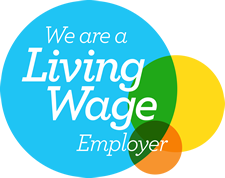
Insights
Helping not-for-profit organisations develop and sustain
the highest levels of employee and volunteer engagement

Insights

Emma’s workshop will focus on diversity, asking if age is the protected characteristic that people forget about. The session will allow delegates to discuss how each generation is shaped and influenced by slightly different cultures and events. The workshop will also look at some common legal pitfalls regarding age discrimination and how to minimise the risk to your organisation.
Strategic People 2020 delegates can take advantage of the opportunity to quiz Emma about all legal aspects at the conference.
Emma’s blog looking forward into 2020 was originally published on Trowers & Hamlins’ Insights page and here were cover some of the key elements.
2020 promises to be a year of significant change, and employment law is no exception! This April sees the introduction of a raft of new legislation, while the Queen’s Speech heralded a couple of new bills on employment and immigration, and the advent of a national disability strategy.
The government is introducing the Employment Rights (Employment Particulars and Paid Annual Leave) (Amendment) Regulations 2018 on 6 April 2020. These provide that a written statement of terms must be given to workers as well as employees, on or before the first day of employment. It will apply to all new joiners on or after 6 April 2020.
The Working Time Regulations 1998 will be changed to make the reference period for determining an average week’s pay (for the purposes of calculating holiday pay) from 12 weeks to 52 weeks, or, if the worker has been employed for less than 52 weeks, the number of complete weeks for which the worker has been employed.
The changes to the holiday pay reference period will apply to periods of holiday from 6 April onwards.
The Agency Workers (Amendment) Regulations 2019 come into force on 6 April 2020. They will remove the “Swedish Derogation” from the Agency Workers Regulations 2010 (this currently allows employment businesses to avoid pay parity between agency workers and direct employees if certain conditions are met).
From 6 April 2020, the Conduct of Employment Agencies and Employment Businesses (Amendment) Regulations 2019 will require temporary work agencies to provide agency work seekers with a Key Information Document, including information on the type of contract, the minimum expected rate of pay, how they will be paid and by whom.
The Queen’s Speech, which was delivered at the opening of Parliament on 19 December 2019, set out details of the legislation that the government intends to carry over into, or introduce in, the new Parliamentary session.
The government proposes to introduce a new Employment Bill which will comprise the following measures:
This comes out of the Good Work Plan in which the government announced proposals for a single labour market enforcement agency to ensure that vulnerable workers are aware of and can exercise their rights. It has already been the subject of a government consultation.
The Bill will introduce a right for all workers to request a more predictable and stable contract after 26 weeks’ service as part of the Good Work Plan. This is focused on gig and zero hours workers.
Currently employees made redundant on maternity leave have the right to alternative employment over competing colleagues. The government will extend the period of redundancy protection from the point an employee notifies their employer of their pregnancy until six months after the end of their maternity leave.
The government has already carried out a consultation (which closed on 11 October 2019) on a new right to neonatal leave and pay to support parents of premature or sick babies.
The government intends, subject to consultation, to make flexible working the default position unless an employer has a good reason not to grant such an arrangement.
The government plans to introduce a different approach to disability following the consultation, ‘Health is everyone’s business: proposals to reduce ill health-related job loss’. Which closed on 7 October 2019.
The government aims to reduce the disabled employment gap and to reach the existing goal of an increase of one million disabled people on work between 2017 and 2027.
There have been consultations over the last 12 months looking at how to structure the workforce of the future, and it is likely that some of these will make their way into law in 2020.
You can read the full blog here.
Don’t miss Emma Burrows’ workshop ‘Diversity: Is age the protected characteristic that people forget about?’ at Strategic People 2020.
5 Linford Forum
Rockingham Drive
Milton Keynes
MK14 6LY
UK
Company No: 4509427
